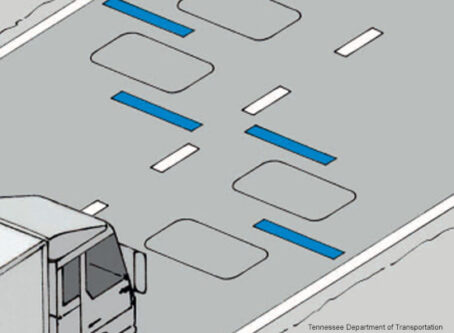Canadian campaigns aim to raise awareness about human trafficking
When it comes to human trafficking, truckers can play an important role in helping to identify and end a heinous crime.
Canada recognizes Feb. 22 as National Human Trafficking Awareness Day. Across the country, initiatives are taking place to educate the public about warning signs and what to do if you suspect a crime is being committed.
Dylan Wecht is the public sector engagement specialist for Truckers Against Trafficking, a non-profit organization dedicated to educating and equipping those in the trucking industry – as well as law enforcement – with the tools necessary to combat human trafficking. Wecht said that drivers are in a perfect position to be a driving force behind those efforts.
“They’re the eyes and ears of our nation’s highways,” Wecht told Land Line. “They’re trained to be vigilant. They see things that other people do not see, and they’re oftentimes in areas where traffickers will bring their victims.”
According to TAT’s 2022 survey, which collected data from 13,600 professional truck drivers, around 7% of those surveyed said they’ve witnessed incidents of sex trafficking within the past three years.
Wecht said that trafficking is “not an easy crime to spot” but that truckers can stay vigilant by looking for the following red flags:
- Cars or RVs parked in truck parking areas
- A person seeming under the control of someone else
- A person lacking knowledge of his or her whereabouts
- A person lacking identification
- Restricted or controlled communication
One of many resources the group offers is an educational training video to help drivers and carriers better understand and identify possible crimes taking place.
“It’s giving them a different set of eyes to view the world and just look out for these possible indicators of human trafficking,” Wecht said. “[Truckers] are an ideal population, both because they’re vigilant and they are great in numbers. They’re obviously in more places than law enforcement – or any other individual – when it comes to being on the road.”
While truckers can play an important role in identifying human trafficking, Wecht said that contacting law enforcement is the best move if you suspect a crime has occurred.
“We do not want anyone to put themselves in harm’s way. We are not asking anyone to be a vigilante or get involved in these potentially very dangerous and violent situations,” Wecht said. “So call law enforcement when you see these red flag indicators, when you have this gut feeling that something is not right, and they will take it over. They are trained to do so.”
Wecht also said it’s important to not ignore the warning signs and that drivers shouldn’t be hesitant to contact officials, adding that he has spoken with “hundreds of law enforcement officers” in both Canada and the United States who say that they would “rather you make that call than not.”
Data from the Canadian Centre to End Human Trafficking shows that, from 2019 through 2022, there were an average of 375 identified cases of trafficking per year in the country. From those were 2,170 recognized victims of human trafficking.
To help with the national awareness day, TAT has partnered with a number of provincial trucking associations to disseminate information and materials about identifying, preventing and ending the crime.
The awareness day in Canada aligns with another important push to bring attention to human trafficking.
Annually, the Commercial Vehicle Safety Alliance conducts a Human Trafficking Awareness Initiative in each of the North American countries. Canada’s event started on Monday, Feb. 19 and runs through Friday, Feb. 23.
The five-day initiative “aims to educate commercial motor vehicle drivers, motor carriers, law enforcement officers and the general public about the crime of human trafficking, the signs to look for and what to do if you suspect someone is being trafficked.”
If you suspect a crime has occurred, or if you are a victim, contact the National Human Trafficking hotline at 888-373-7888 in the United States or 833-900-1010 in Canada. LL









